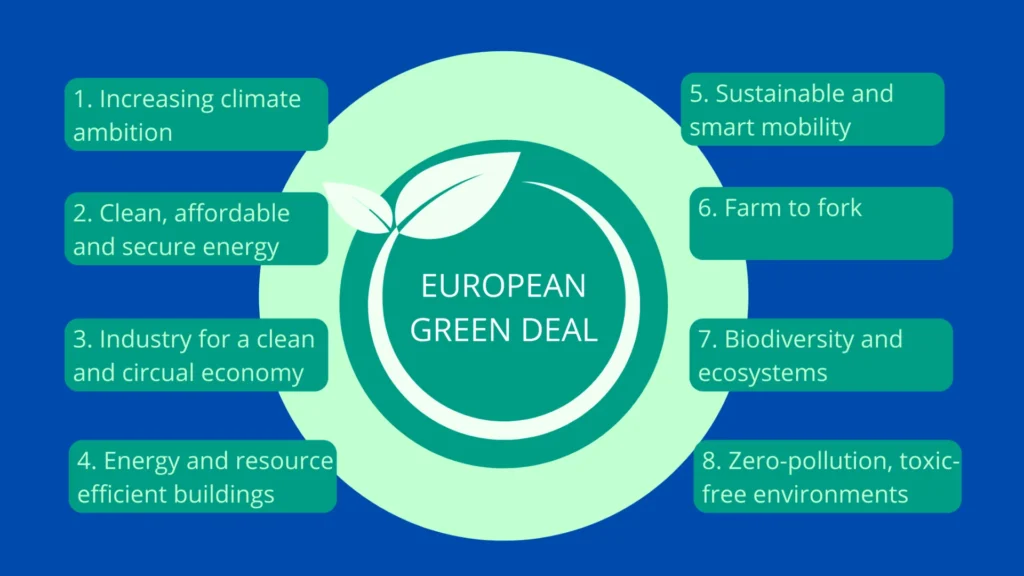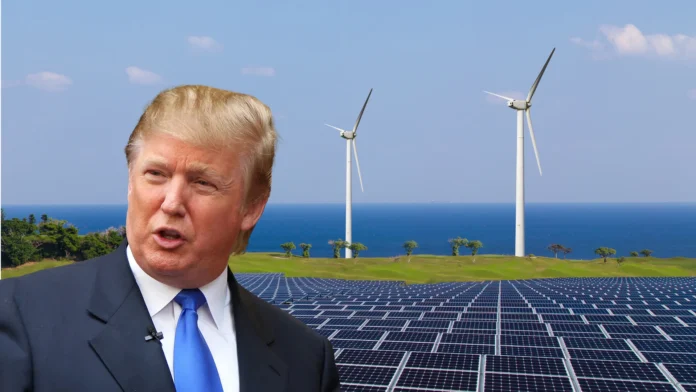Introduction
The recent policy shifts under the U.S. administration particularly President Donald Trump’s green energy rollback initiatives, have significant implications for both the U.S. economy and global climate efforts. These changes not only risk economic setbacks within the United States but also present opportunities for countries like India to lead in sustainable growth.
Impact of Trump’s Green Energy Rollback on the U.S. Economy
The Trump administration’s decision to reverse key climate policies, such as the Inflation Reduction Act (IRA), threatens to derail the United States’ progress in the clean energy sector. This move could result in the loss of billions in investments and exports, as well as the forfeiture of leadership in emerging technologies like electric vehicles and renewable energy infrastructure. A report by the Net Zero Industrial Policy Lab at Johns Hopkins University indicates that such policy reversals could cost the U.S. economy up to $50 billion in lost exports and open up to $80 billion in new supply chain markets for international competitors.
Moreover, the suspension of federal funding for clean energy projects has already caused disruptions. In states like Indiana, a $4.42 million solar electricity initiative aimed at providing solar energy to over 530 low-income properties is now in jeopardy due to the funding freeze. This not only hampers local economic development but also undermines efforts to make renewable energy accessible to underserved communities.
India’s Role in Sustainable Growth
In contrast, India has been making significant strides in renewable energy, demonstrating that economic growth can be achieved alongside environmental responsibility. The country’s commitment to initiatives like the International Solar Alliance and substantial investments in solar, wind, and green hydrogen projects underscore its dedication to a sustainable future. These efforts not only address domestic energy needs but also position India as a global leader in the green energy sector.
The policy shifts in the U.S. may inadvertently benefit India’s clean energy sector. With potential declines in U.S. manufacturing due to the rollback of supportive policies, countries with established clean technology capabilities, such as India, are well-positioned to fill the gap. This could lead to increased market opportunities and investments in India’s renewable energy industry, further bolstering its economic growth and environmental sustainability.
Global Economic Implications
The U.S. retreat from clean energy commitments is poised to have ripple effects across the global economy. In Europe, for instance, there is concern that such policy changes could undermine the competitiveness of the European Union’s Green Deal. Climate change poses significant and increasing economic costs, making sustainability essential.

Despite pressures to reduce environmental regulations due to international influences, such as the new U.S. President Donald Trump’s stance, deregulation would be counterproductive. Simplifying bureaucracy and supporting SMEs, particularly in clean energy, is necessary. Clear policies and consistent regulations are vital for sustainable investments and innovation.
The EU must avoid extensive deregulation that could favor less progressive companies. Decarbonization and competitiveness are not mutually exclusive, and initiatives like the Draghi competitiveness report and the Clean Industrial Deal should reinforce a sustainable growth strategy. As China advances in renewable energy, Europe must continue its ambition to remain competitive globally. The Green Deal supports Europe’s broader economic goals, emphasizing the necessity for policy action to mobilize long-term investments and maintain industrial leadership in the clean energy sector.
China, on the other hand, stands to capitalize on the void left by the U.S. The country has been aggressively investing in renewable energy technologies and infrastructure, aiming to dominate the global market for electric vehicles, batteries, and renewable energy components. With the U.S. scaling back its support for clean energy, Chinese companies may find expanded opportunities to export their technologies and establish supply chains in countries seeking affordable renewable energy solutions.
Conclusion
While the U.S. faces potential economic and environmental setbacks due to recent policy changes, India exemplifies how robust growth can be achieved without compromising on carbon emissions. By continuing to invest in and prioritize renewable energy, India not only enhances its own energy security but also sets a precedent for other nations aiming to balance development with ecological responsibility.
Simultaneously, the global economic landscape is shifting, with countries like China and those in the European Union poised to either benefit from or be challenged by the U.S.’s policy decisions, underscoring the interconnected nature of energy policies and economic outcomes worldwide.


